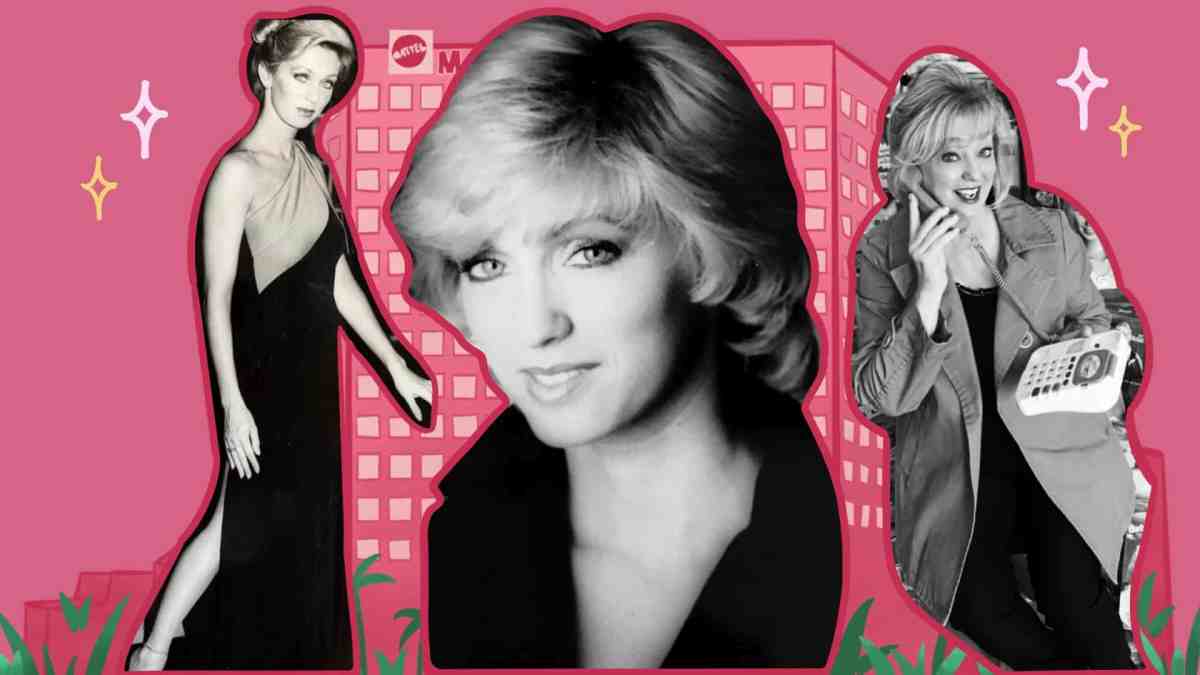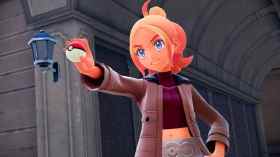On 17 January 1994 at 4:30 am in the San Fernando Valley region of Los Angeles, the Northridge Earthquake occurred. It was a 6.7 magnitude earthquake, the highest ever instrumentally recorded in an urban area in North America. Two aftershocks followed. Property damage was estimated to be up to $50 billion dollars, one of the most expensive natural disasters in American history. Amongst the chaos, 36-year-old actor Chris Anthony Lansdowne assumed her mysterious audition for Mattel was cancelled.
She was wrong.
Chris Anthony Lansdowne: That week I was going to go for my audition, we had an earthquake, and it was a big enough one to where it was pretty serious. And this is the kind that the dishes are flying off the walls, one apartment building… probably 20 minutes from me, collapsed completely. So it was sizeable.
I had my one and only daughter. She was just a baby. And in the morning, it was dark still, and this earthquake happened and it was pretty intense. I’d never been in one like that. So anyways, my place was a mess. Things broken, and I had a baby, my audition was the next day. So when you’re in the middle of an earthquake, you’re not thinking about your audition, right? You’re thinking about living through it.
I made a phone call to Mattel. They’re almost 45 minutes away, maybe to an hour. I called them. I says, ‘I’m not coming. I’m in the middle of this earthquake.’
Well, the director at the time, Jacques DeLong says to me, ‘Well, if you just say a few things for me on the phone, I’ll kind of know if you’re kind of what we’re looking for.’
At this point, Barbie didn’t really have an established voice. So they were looking for her voice. I didn’t know this (was Barbie), I just thought it was a doll. So I remember going to my bedroom and sitting on the floor and talking to the director and I said, ‘I’m kind of stressed out, but sure, whatever you need. I’ll say a couple lines just so you could hear if I’m in the ballpark.’
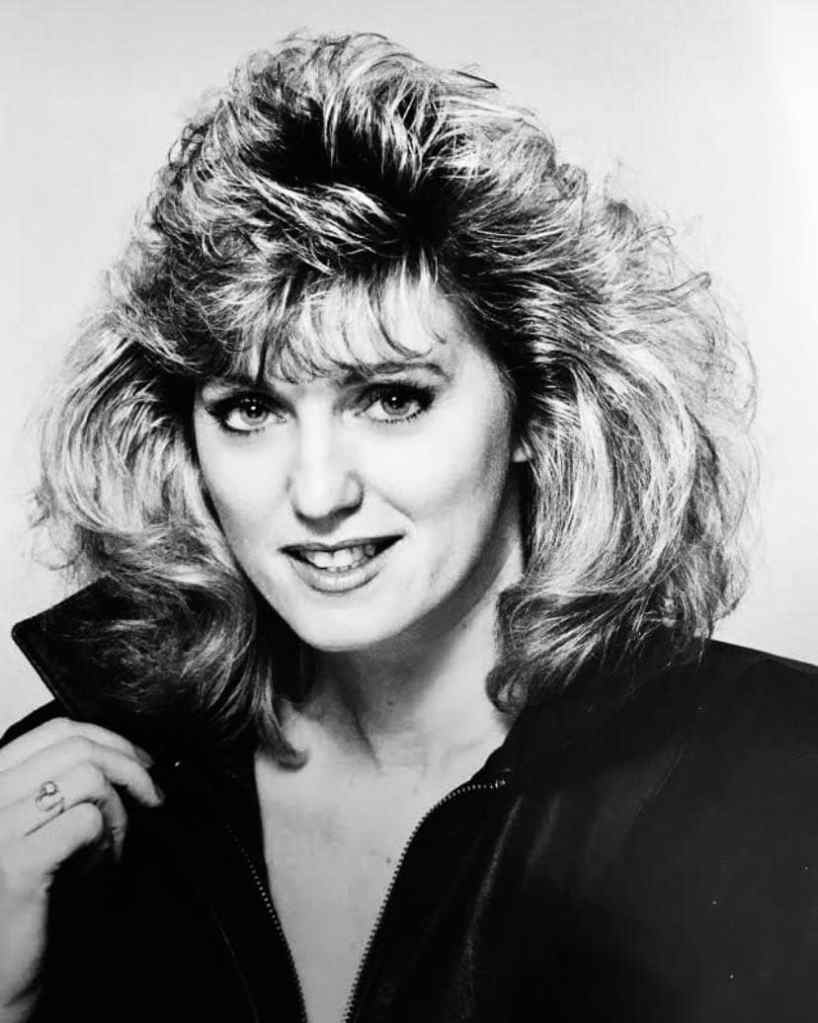
He says, ‘All I want you to say is, “Hi, this is Barbie. Welcome to McDonald’s.”‘
I went, ‘Barbie?’ Remember, tremors are still coming in.
Sure, I could do that. Barbie – I have to do that in the middle of an earthquake? I remember I was having these flashes of playing with Barbie on my bedroom floor when I was a little girl with my sister who used to fight over who gets to be Barbie. I’m thinking, ‘Oh my gosh, okay. Just get focused, Chris.’
‘Hi, I’m Barbie, welcome to McDonald’s.‘
It got really quiet and he said nothing.
‘Hello? Hello? Can I do it again? I’m really nervous.’
‘No, no, no, no, no, no. That’s just fine. That’s just right.’
‘Can you come tomorrow down to Mattel and just do what you just did for a few people?’
‘Sure.’
I mean, this is bizarre. Barbie’s their baby.
I remember thinking to myself at that point, the water’s turned off, you just got to go and do this. I’m thinking, ‘But I can’t take a shower. I can’t fix my hair.’ My husband says, ‘Chris, just go. I’ll take care of things. Just get in your car and go.’ And I remember putting on my baseball cap, getting in my car and driving down to Mattel.
So I drove there, got behind a mic. There were six, seven people sitting behind the recording booth in suits, very big wigs. I sat on the stool and I was nervous, really nervous.
‘Hi.’
‘Could you just please do what you did on the phone for us?’
‘Hi, it’s me Barbie.’
And I did the whole thing again, he looks at me and then he looks at the guy sitting next to me and then they go, they whisper.
I’m thinking, ‘Nobody’s talking to me. Should I do this again?’
And in that one moment, he reached for the talkback button.
‘Could you start being our Barbie tomorrow?’
And so that next day I started the first Barbie talking doll. She said like 10,000 phrases. She was Super Talk Barbie, and I can’t tell you, I just sat on that stool and behind the mic, I thought, ‘I’m going to be Barbie.’
It was amazing. We must’ve recorded toy after toy. We were doing skates. We were doing Talking Dolls. I was Working Woman Barbie, Teacher Barbie, Dentist Barbie, Spanish-Speaking Barbie, which I had to have help with, believe me. We recorded talking watches, talking cell phones and cash registers and toy after toy. Then we got into the CD-ROMs, which is when people go, ‘What’s a CD-ROM?’
Chris Anthony Lansdowne would voice Barbie for more than eight years. Her many video game credits include Barbie Fashion Designer, Barbie Riding Club, Secret Agent Barbie, Detective Barbie, as well as countless toys.
CAL: I think probably the most interesting one would be Talk With Me Barbie. What was really fun about her and probably the most challenging, was they decided they wanted to put in her little computer chip every child’s name they could possibly think of, so that when Barbie played with you, she would say (your name).
But with that came them finding every name under the sun. We went through baby books, names after names, because they wanted to make sure every single name was programmed into her. We didn’t just do American names, we started to go into other languages. So I could literally do a whole day of:
‘Mary, Cindy, Lisa, Lulu…’
Just hour after hour of saying names so they could put it in. And then we went to Italian names and the Spanish names.
‘Maria, Lucinda…’
Three months of just doing names.
It was so intense. I’d have to take breaks because they’d say, ‘Chris, are you okay?’ And I’d go, ‘No –
‘Linda, Marie.’
It was a lot of concentration. I used to really think to myself, I just pictured little girls in their room and I was calling to them, like Mary, I would call out to them. It helped me cope somehow.
In the late 1990s, Barbie was one of the most valuable brands in the world. Mattel headquarters was based in El Segundo, California.
CAL: Mattel was awesome. It had some really great people. Now, the fun part was in the ’90s, when you’d walk into the Mattel lobby, at the time there was this huge, tall statue of Barbie. I looked at her and went, ‘I’m going to be your voice.’ It was so surreal.
I remember the receptionist was a really sweet lady, and she’d always say, ‘Hi Chris, ready for a day at Barbie?’ And I’d say, ‘Sure am!’ And I’d walk through.
Now at that time, they had this huge warehouse set up with all the different toys of that era, like Hot Wheels was really big at that time. They had all cubicles of different toys being worked on. And so I’d have to walk through all that to get to the sound design studio. It was really exciting because I could see all these secret projects being worked on. You weren’t supposed to go, ‘Look at these,’ you’re walking through, you just keep your eyes ahead and you go to the studio.
But then there was one day – I’ll never forget this – this is after I was doing her (voice) for a while. There was this cubicle, they were working on these little Barbie heads. In this cubicle was a bunch of women with these tiny little magnifying glasses over their eyes and they were painting Barbie’s eyes. Literally, you know how you do the little line in the middle? They’re all sitting in this whole cubicle, just little heads everywhere. Just as I turned the corner and my head was passing their cubicle, I went:
‘Ouch, that hurt.’
It was just my sick sense of humour. Because they went (Chris gasps). They heard the voice, they’re painting these little lines, and it was hysterical. I don’t think I ever told anybody that story.
During her time as Barbie, Chris was not permitted to disclose her secret identity to anyone – not even to advance her own acting career. But she chose when and why to break the rules.
CAL: It was quite a responsibility. You knew that that particular doll was an icon.
I go into a recording session and depending on who the director was, the particular toy or whatever we were working on, there would be people having fun, goofing around and would say things like, ‘Oh, you should have her say this. This would be so funny if she said blah, blah, blah, blah, blah.’
And I’d say, ‘Nope.’ I would never ever do that. You don’t want to be on some recording somewhere saying something off-colour, something that wasn’t in good taste. Because that’s always the big joke, to make Barbie say something that was like, ‘Oh, don’t say that.’ And I never did that. I knew to never cross that line.
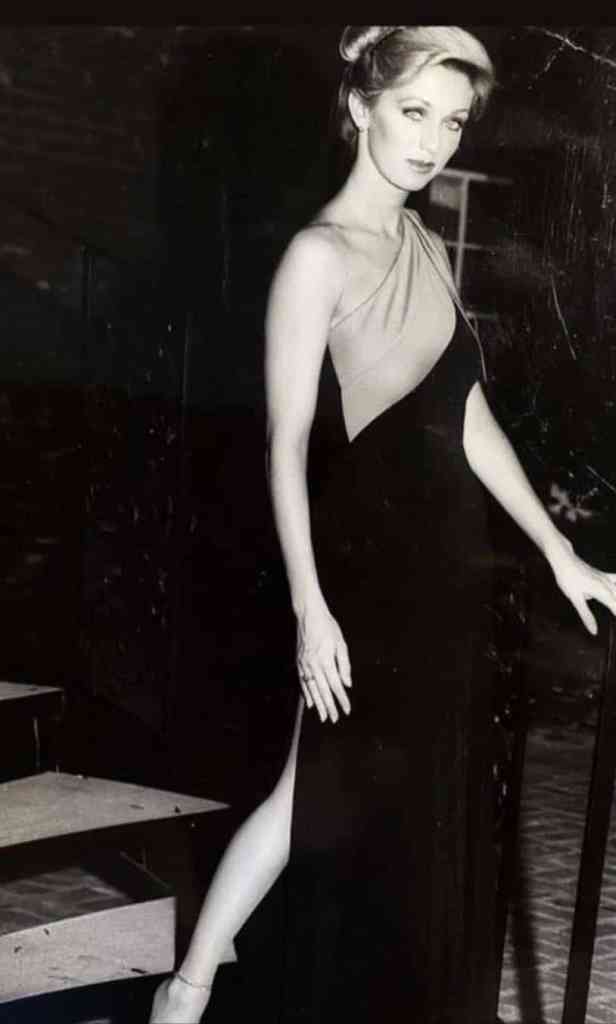
During that period, I was not allowed to do any interviews, I could not do any. Talk shows, interviews, newspapers wanted to just talk to the girl who did Barbie. Mattel says, ‘No, you cannot do any interviews. We want her voice to not have a face, we want it to be completely that mystique of Barbie being Barbie.’ They don’t want them to say, ‘Oh, there she is.’ They want Barbie to just be Barbie. So I couldn’t do any (press), I couldn’t tell anybody. I just was grateful.
It was (hard). But I was so grateful, grateful that I had that job and I honoured it. And people would say, ‘So what are you working on today?’ And I’d go, ‘Uh…’
My intimate friends would know, but I couldn’t do things for my own promotion, for my own voice-over career, I could not say anything. And it was hard. There were times though that I did kind of break the rule a little bit. And there would be little girls that are sick or families, they’re going through a divorce and somebody would call me up and say, ‘Could you call so-and-so’s little girl? She’s in the hospital. Could you be Barbie and encourage her?’ And I never thought twice about it, I said, ‘Absolutely.’ I’d make phone calls to kids that were sick or being left out at school, they had no friends. And I’d call as Barbie.
‘Hi, I’m your friend. I care.’
So that was my connection that made me feel good about doing things I should be doing.
Chris couldn’t be Barbie forever, and eventually, Mattel moved in a new direction for Barbie’s voice.
CAL: It changed me in a lot of ways actually. I’m a very grateful person, that’s how I live. I’m grateful for everything I get. I even have a strong faith, so I’m grateful to God and for a lot of things in my life. But I think at the height of when I was really doing her voice, it became a real responsibility.
She really did (become a part of me). It’s hard not to get caught up in the identity. Because your head could go, ‘I’m this, I’m that,’ but what happens is you get work and you’re grateful and it never lasts forever. You ride the ride. It’s like a wave that kind of comes in and you ride it and you ride it, but sometimes it just comes to shore and it’s done.
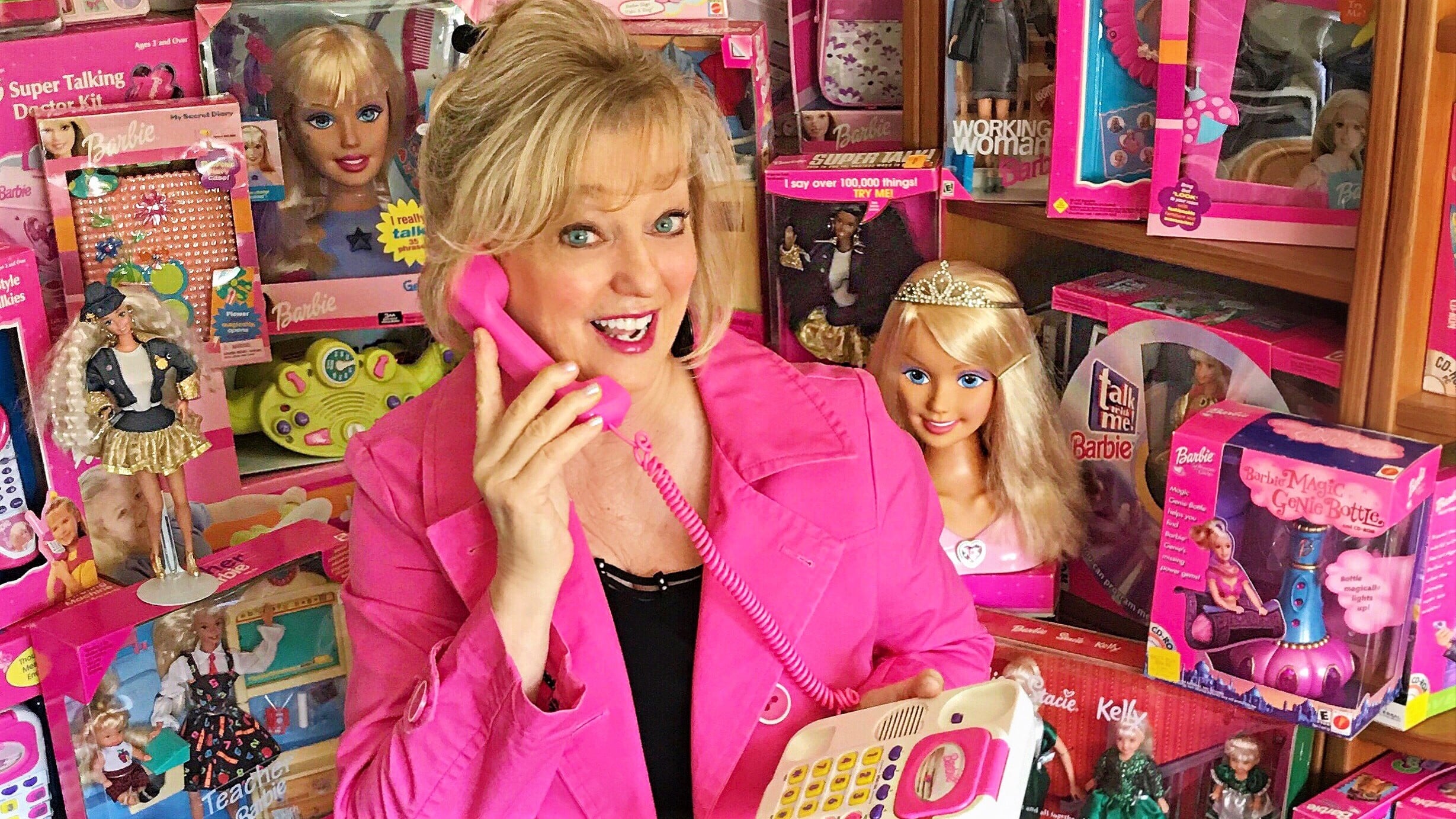
And I remember the turning point of that, after years of doing lots of toys, Toy Story came out and Toy Story was a big deal. And I remember people at Mattel saying this, they go, ‘Guess what? Disney is doing a Toy Story and they’re going to put Barbie in it and you’re going to be in Toy Story.‘ And I went, ‘Oh my God. Mom.’ I called people that I knew, ‘I’m going to be in Toy Story!’
Well, come to find out, when it came right down to it, somebody came in and told me, ‘I’m so sorry to tell you this, but Disney decided to use their Barbie pick.’ So eight years of doing all this and they picked their own voice. But for some reason, they picked a girl that did a little redhead mermaid, and I was just crushed.
I thought to myself, you’re going to let somebody else be Barbie? Doesn’t she have enough jobs? Isn’t she well-known for that part? But she came in and she did a good job. It wasn’t how I would picture it because she had more of a different sound than me. But the problem with that was, in my heart, I accept it because that’s what happens in this business. There’s no guarantee, nothing lasts forever.
But because I could not share with anybody that I was doing her voice, when the credits rolled in the theatre with Toy Story, Barbie’s voice came up with her name, and everybody thought, ‘Oh, that’s who Barbie’s been all this time.’ I went, ‘No, it’s not.’ So they assumed that was Barbie, when I had spent all these years doing it.
So it was an interesting thing. It was crushing to me, but at the same time, you get that little kick in the stomach. And you say to yourself, ‘I’m grateful. I’m really thankful that I got to do all this, and that’s not in my control.’ None of that is in your control.
Now, almost 30 years after Chris Anthony Lansdowne was cast, several actors have continued Chris’ legacy as Barbie.
CAL: There was one time (when) there were other toy makers that were coming out with Barbie products… Some of the licensing knew that I was the voice for her, but some didn’t. And so they would license out the toy that these people wanted to do, and then they would do their own Barbie for it, and we would hear it and it would not be like,
‘Hi, it’s me Barbie,’
but,
‘Hi. It’s me Barbie.’
And I remember thinking, ‘Not me!’ There was one doll… somebody did the voice for it, was not really great, but it got really popular. So they call me in, they go, ‘Okay, we want to just do the voice that was in the head again.’ I went, ‘I didn’t do the voice that was in that head.’
So I had to come in and record trying to sound like that voice, and she was trying to sound like me. So I had to record me, trying to sound like her, and she was trying to sound like me!
I hear other girls do it, and it’s like a sisterhood to it. When you say you did Barbie’s voice, I think we all know that feeling of how special that is. And when I talk to somebody else that records her voice, I think we have a special little thing that says, ‘You know what that’s like, don’t you?’
But I hear other Barbies and I think that’s a different version, that’s a different way of thinking about it. But they’re all unique in their way. Mine fit that certain time period, and then the next girl came in and did her version of it. I remember the movies came out. I thought to myself, oh, it’s so different. But then that was the time, the times changed.
Now, behind Chris Anthony Lansdowne’s desk in her home in California, there’s a bookshelf littered with hot pink.
CAL: … It’s been a long time, but she’s still part of my world, you know?
I collect toys, it’s a thing you do because they’ll go away. I’ll collect something I did, and this shelf back there, there’s some products on there, some Barbie stuff that is up there. And they remind me of those fun days.
She’s never far.
